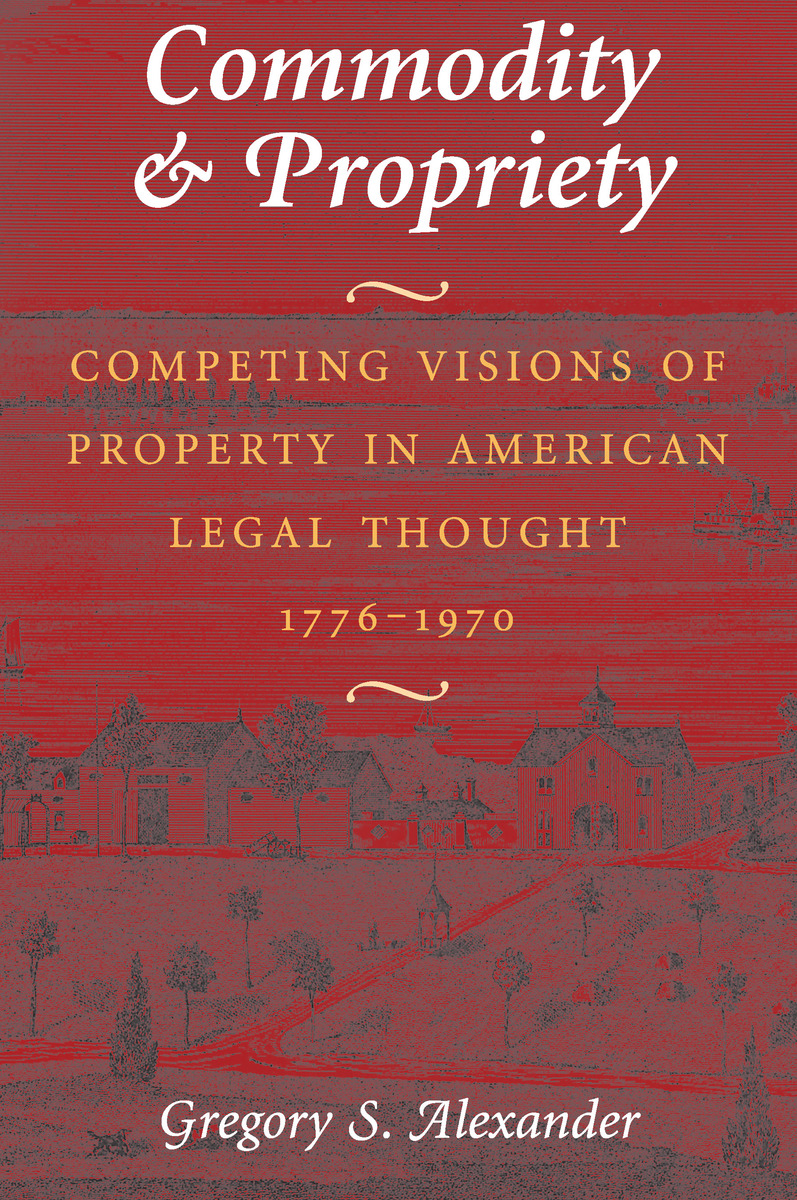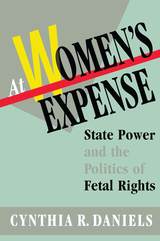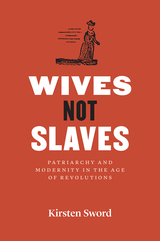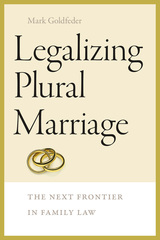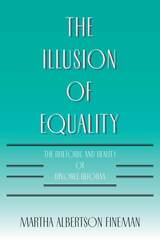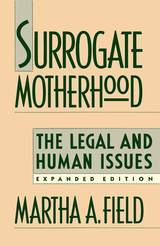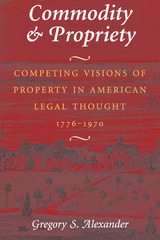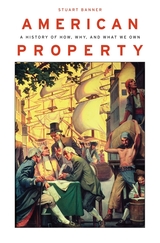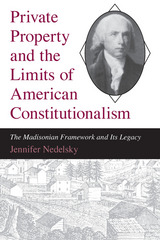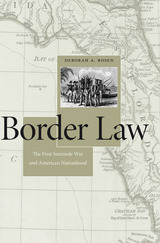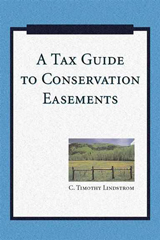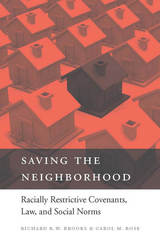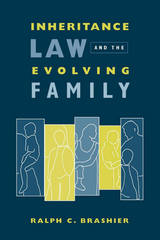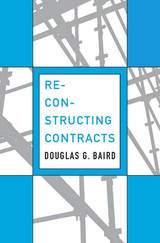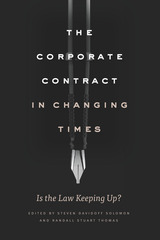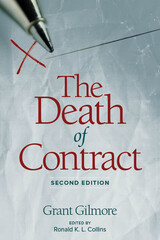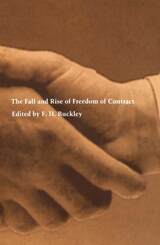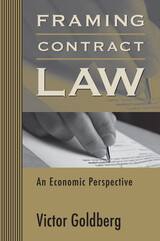Commodity & Propriety: Competing Visions of Property in American Legal Thought, 1776-1970
University of Chicago Press, 1997
eISBN: 978-0-226-01352-7 | Paper: 978-0-226-01354-1 | Cloth: 978-0-226-01353-4
Library of Congress Classification KF562.A43 1997
Dewey Decimal Classification 330.17
eISBN: 978-0-226-01352-7 | Paper: 978-0-226-01354-1 | Cloth: 978-0-226-01353-4
Library of Congress Classification KF562.A43 1997
Dewey Decimal Classification 330.17
ABOUT THIS BOOK | AUTHOR BIOGRAPHY | TOC | REQUEST ACCESSIBLE FILE
ABOUT THIS BOOK
Most people understand property as something that is owned, a means of creating individual wealth. But in Commodity and Propriety, the first full-length history of the meaning of property, Gregory Alexander uncovers in American legal writing a competing vision of property that has existed alongside the traditional conception. Property, Alexander argues, has also been understood as proprietary, a mechanism for creating and maintaining a properly ordered society. This view of property has even operated in periods—such as the second half of the nineteenth century—when market forces seemed to dominate social and legal relationships.
In demonstrating how the understanding of property as a private basis for the public good has competed with the better-known market-oriented conception, Alexander radically rewrites the history of property, with significant implications for current political debates and recent Supreme Court decisions.
In demonstrating how the understanding of property as a private basis for the public good has competed with the better-known market-oriented conception, Alexander radically rewrites the history of property, with significant implications for current political debates and recent Supreme Court decisions.
See other books on: Alexander, Gregory S. | Civil society | Commodity | Property | Propriety
See other titles from University of Chicago Press
